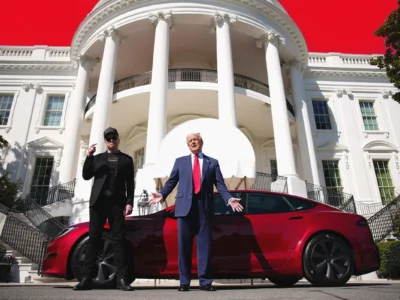On the Nature of “Stuff”

In celebrating National Schadenfreude Day yesterday, I could not help noticing Bill O’Reilly’s complex analysis of the election returns:
“Voters want things. They want stuff. Who’s going to give them stuff? Obama.”
Well. Actually, the government has given the wealthy “stuff” all the time. It gives them a whole plethora of specific tax breaks and credits. Indeed, one could argue that Bain Capital’s entire model is based upon tax arbitrage — a huge gift from the federal government to certain forms of finance capital.
What’s more, government gives the rich patents, trademarks, and copyrights. It gives them limited liability corporations. It gives broadcasters broadcast licenses. Property is not a brooding omnipresence in the sky. It is created by the state. In the United States, common law courts create and define the bounds of property. That does not mean that because the state creates property, it can take it whenever it wants. Far from it. Property rights are good, and vital, and important, for reasons having to do with everything from privacy to liberty to efficiency to personality. That’s why they have and should have legal and constitutional protection.
But the background assumption behind O’Reilly’s statement — and really behind the statements of all conservatives having hissy fits processing their defeat — is the idea that some people’s property is inherently more legitimate and “natural” than others, and that some people deserve property and others don’t. There is an argument there. But it is an argument that should be made on moral and political grounds. Why does Bain Capital deserve its government-created property more than, say, a family of four with two working parents in minimum-wage jobs making a total of $28,000 a year?
If this is the best that the Right can do in the wake of Election Day, it will be a long time before it has anything constructive to say about the future of our country — whether it wins elections or not.
Reader Comments
2 Replies to “On the Nature of “Stuff””
Comments are closed.







I was listening to a program on “Ideas” a Canadian radio show on CBC and they were talking to a scholar and the line i remember is something like “the way that democracies keep the masses happy is with cheap credit and cheap consumer goods” – stuff and the chance to buy more stuff. The implication here is that the only way that the masses will start to care about many policy issues including debt, services and taxes in a realistic way is when there is a threat to cheap credit and cheap consumer goods.
I was listening to a program on “Ideas” a Canadian radio show on CBC and they were talking to a scholar and the line i remember is something like “the way that democracies keep the masses happy is with cheap credit and cheap consumer goods” – stuff and the chance to buy more stuff. The implication here is that the only way that the masses will start to care about many policy issues including debt, services and taxes in a realistic way is when there is a threat to cheap credit and cheap consumer goods.